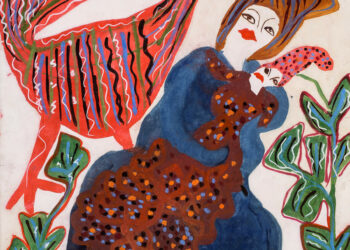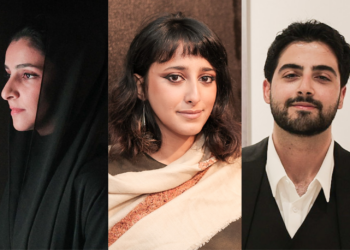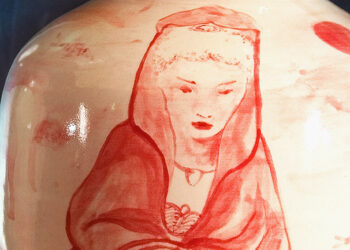The University of Johannesburg Art Gallery in partnership with Everard Read Gallery and the Embassy of Sweden Pretoria, proudly presents: ‘Ntlo E Etsamayang’ (The Walking House), a compelling exhibition co-curated by Gabriel Baard and Prof. Kim Berman. This exhibition honours the remarkable artistic journey and commitment to Indigenous Knowledge Systems of Mmakgabo Mmapula Helen Sebidi.

Opening publicly on 6 April 2024, the exhibition commemorates the recovery of 28 lost artworks, discovered at the Nyköping Folk High School after 32 years of their disappearance in Sweden. Join us at the UJ Art Gallery as we unveil these long-lost treasures to the public for the first time.
‘Ntlo E Etsamayang’ is a triumphant celebration of Sebidi’s artistic journey, confronting themes of self-positioning, power, responsibility, and healing. This exhibition reflects on the exchange of knowledge between South Africa and Sweden, highlighting Sebidi’s dedication to facilitating communication of the socio-political conditions that govern day-to-day existence.
Sebidi’s artworks serve as a powerful reminder of the enduring connections forged through artistic expression and cross-cultural dialogue. These artworks not only reclaim lost masterpieces to the public eye but crucially resurrect a critical chapter in the national artistic consciousness. Each artwork communicates an acute and unbounded search into the relationship between humanism and spiritualism of the contemporary black African lived experience.
This exhibition highlights not only Sebidi’s early artistic endeavours but also a pivotal juncture in her practice, heralding a significant moment of stylistic transformation into a new idiom that would pulsate with energy; part figuration, part abstraction, yet continuously seeking to escape the boundaries of both. Her art depicts the disordered and often uncomfortable process of decolonising, through which she has cultivated a visual language that compels us to feel things and perhaps even devote our own lives to the cause.
Mmakgabo Mmapula Helen Sebidi, born in 1943, is a renowned South African artist. Her work reflects the resilience of the human spirit and explores themes of societal struggle and cultural heritage. Sebidi’s artistic journey began in the late 1960s, influenced by her grandmother’s traditional painting techniques. Undeterred by economic challenges, she pursued her passion and used her art to express her observations and experiences of the dehumanising conditions she witnessed first hand in the townships.
Sebidi’s defiance of conventional notions of black womanhood embodies a radical subjectivity unbound by enforced domesticity. Despite overwhelming odds and systemic barriers, Sebidi’s unwavering commitment to artistic excellence has left an indelible mark on South Africa’s cultural landscape.
Her oeuvre spans various mediums and captures the injustices of apartheid as well as the resilience of marginalised communities, particularly women. By drawing upon traditional skills and contemporary insights, her art offers critical commentary on colonial legacies and societal norms. Furthermore, it provides a profound lens through which to explore history, identity, and social justice, fostering dialogue and reflection on South Africa’s complex past and its enduring impact.
‘Ntlo E Etsamayang’ will be on display from 6 April to 17 May 2024 at the UJ Art Gallery on the University of Johannesburg’s Kingsway Campus in Auckland Park. For more information, please visit UJ Art Gallery.



